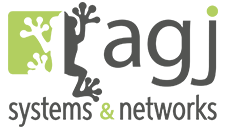Did you know that October is Cybersecurity Awareness Month? One common request we receive is for assistance when it comes to Wi-Fi security, so we wanted to cover the information you need to make your internet more secure. In this blog, we’ll be discussing why Wi-Fi security is so important, what potential threats you can face, what steps your business can take to improve security, and how IT consulting can be a difference-maker for your strategy.
Why is Wi-Fi Security Important?
Between phishing and password management, there’s a lot to think about and plan for in cybersecurity. Wi-Fi also deserves your attention. Without a security strategy here, you could be putting your business, employees, customers, and bottom line at risk. Even just one weak aspect could threaten your company and network.
By breaking into your network, cyber attackers can steal valuable data on both your company and customers. This could be from any device that connects to your company’s Wi-Fi, including laptops, desktops, smartphones, smartwatches, tablets and more. If you’re targeted by one of these attacks and hacked, malware can be installed and you could witness sensitive information for your business, employees and customers being stolen. Fixing your network and the undertaking the damage control that follows, could cost your company big time – in some cases, millions.
What Threats Does Your Wi-Fi Face?
While cybercriminals can use your Wi-Fi to install malware and steal data, how exactly do they do it? There are a few different tactics and threats IT management teams have to be on top of. They include:
Rogue Access Points
Do your employees connect their personal laptops or smartphones to the Wi-Fi network? If your IT department isn’t alerted, that could be a weak point in your Wi-Fi security strategy. Devices not planned for or allowed on the network are considered “rogue access points” and could be the perfect window for a hacker to climb into.
Rogue Clients
Rogue clients are clients that shouldn’t be connected to your network, but are. They are unauthorized and will, if allowed to act, deliver malware onto your network after connecting to access points.
Neighbor Access Points or Client Disassociation
You could also be leaving your network open to attack if SSIDS are connecting in the range of an authorized AP. Employees can sometimes be guilty of this if they’re trying to get around security protocols to listen to music or download files that aren’t allowed.
Ad-Hoc Networks
Computers can talk to one another without the router. However, this could be going against your current security strategies and defenses, and may open your network and Wi-Fi to malware.
“Evil Twin” Access Points
“Evil Twin” access points have been around for almost 20 years. These threats will broadcast the same SSID as a legitimate access point, which could trick the approved device into connecting. If the attack is successful, these APs can be used to steal data, look at traffic and infect the system.
Misconfigured Access Points
Are there holes in your current access points? If so, you could be open to attacks and not realize it. Open networks are usually the result of configuration errors.
What Steps Can Your Business Take to Improve Your Network Security?
There are, thankfully, plenty of steps your organization can take— starting today — that can improve network and Wi-Fi security. Here are a few to begin with:
Review Your Current Network Security and Setup
When was the last time you reviewed your network configuration? Many businesses install their router and never look at it again. If it’s still on the default settings, you could be putting your work at risk. All the hacker would need are the right details to break in.
Keep on Top of Updates
It can be frustrating to have to pause work to update software or hardware. However, without these updates, you could be opening your Wi-Fi and network to threats. Businesses should be regularly ensuring that all updates are installed, including firmware updates and patches.
Have a Strategy for Access Points
If you have customers who want to use the Wi-Fi while they visit, it could be dangerous to have a single access point. After all, how do you know for sure they don’t want to steal your information? Or their device isn’t already compromised? Split access points (AKA guest Wi-Fi) allow you to keep your work and customers separated while using your internet connection.
You should also have a plan to tackle rogue access points and educate your team members about the risk. Employees should not be using workarounds to get past your current security. If they are, threats can sneak in.
Take Advantage of VPNs
Whether your employees are working from home or they’re traveling, working on an unsecured network could put your own network, passwords and data at risk. VPNs should be used when not on the secure line at the office.
Secure Ethernet Ports and the Router
Most concerns about the internet and security come from the Wi-Fi, but one area you need to look at is the physical locations of your ethernet ports and router. Are they easily accessible to customers or guests? If so, they could sneak onto your network and do damage.
And More:
A few other steps you can take include:
- Updating your Wi-Fi security strategy regularly
- Using firewalls
- Taking advantage of encryption
- Using cloud services
Working With an IT Consulting Company Like AGJ Can Help
An additional strategy that could make the difference for your Wi-Fi security and overall business cybersecurity, is working with an IT consulting company that understands the threats as well as the solutions.
AGJ works with companies like yours on the Gulf Coast to develop strategies that can improve the security of your network while also planning for potential attacks. Is it time to get your Wi-Fi security up to speed to meet current cyberthreats?
Find out more about our IT consulting work and schedule a free network security assessment here.


